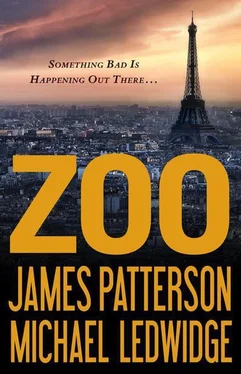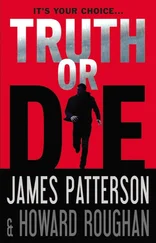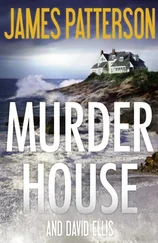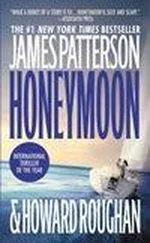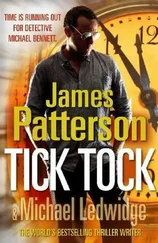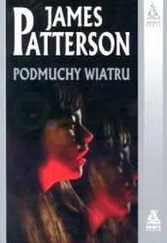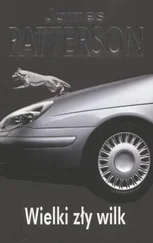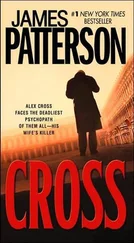“Well, you’re here now,” I said. I found myself wanting another brush of her lips. I squeezed her hand back, swiped the Champagne bottle from the bar, and offered it to her. “You made it. We both did.”
“So you’re not a documentarian. Who—I mean, what are you?” she asked.
“I’m actually a scientist, too. A biologist.”
“From Columbia University?”
“Yes,” I said. “How’d you know?”
She took a swig of Champagne.
“It was written on your underwear.”
“JACKSON OZ. COLUMBIA University,” Chloe said. To my great irritation, I felt my face reddening. “I thought I knew all the names from Columbia. Do you know—er…” She put a thin finger to thin lips and her eyes turned up, trying to think of a name. “Michael Shrift?”
“Mike was my adviser,” I said.
“Oh, so you are—er—a student?” Chloe said.
I liked her accent. This woman somehow made being confused sexy.
“Well, actually, I dropped out,” I said.
She gave me a cockeyed glance, the needle of her WTF-ometer twitching.
“You dropped out? Um…let me guess. You have a blog.”
“Yeah,” I said, brightening. “Do you read my blog?”
“No,” she said, taking another sip from the Champagne bottle. “It was just a guess. But I will now. Since you saved my life.”
I didn’t like the faint note of sarcasm in her voice. When things aren’t going your way, change the conversation.
“What was your population study about?”
“Over the last few years, there has been a big change in some migratory bird populations,” Chloe said as she shifted the bottle to her other hand and looked at the label. “Changing very rapidly. We do not know why.”
“So you’re saying what?” I said. “Birds are dying?”
“No,” Chloe said, picking at the foil on the bottle with her thumbnail. “It’s just the opposite. Bird populations are increasing at incredible rates. Exponential. It is very, very strange.”
I thought about that. Like frogs, birds are often indicator species—animals whose population stability is a good measure of the stability of an ecosystem. Changes in the environment affect them quickly. Did this have something to do with HAC? I wondered.
“Tree nesters?” I said raising an eyebrow.
“Yes, and shrub and ground nesters as well,” she said. “The phenomena are so unprecedented that many of the faculty in Paris refuse to believe it. That’s why my colleagues and I came here. To gather data. I think something very, very wrong is happening to the environment.”
“So do I,” I said, talking fast now, getting excited. “It’s not just the birds. There’s been a massive outbreak of animal attacks on human beings over the last three years. The lions that killed your friends and mine, that wasn’t just an isolated incident. Human beings are being increasingly attacked by animals. There’s something that’s gone completely haywire with the lions in this area. And other species, too. I think there’s something badly wrong with the environment that’s changing their behavior.”
I rooted around in my backpack for the camera and set it on the bar.
“Look. This happened this afternoon.”
Her face betrayed shock as she watched the footage.
“Oh, my God! That can’t be right. I was so busy running for my life, I hadn’t noticed. The lions were all male? How can that be? That has never happened before.”
She shook her head at the screen and looked up at me with dinner-plate eyes.
“You need to show this, Jackson,” she said. “People must see this.”
“They will, Chloe.” We began to hear the low thrum of a plane engine in the distance. “And please. Call me Oz.”
SIX HOURS LATER, wearing my good shoes and scratching one of those maraschino-cherry ant stings below my ear, I went clattering down the back stairs of Riley’s—Maun’s largest, and as far as I knew only, hotel.
Dropping my packed bags beside the scuffed brass rail of the outdoor hotel bar, I looked around for Chloe, whom I was supposed to meet for a quick drink before my midnight flight out of Botswana.
I did a double take when I spotted her talking on her cell phone, her luggage bunched beneath her feet at the bar stool. We had both been so bitten, bloody, and dirty we’d looked like mud idols when we came out of the bush a few hours before, but now, in a pale yellow dress with her hair still damp from the shower, Chloe was stunning.
I was struck by how happy I was to see her. Besides her obvious assets, I couldn’t get over the toughness, the dogged will to live that this tiny slip of a woman had shown in surviving the trials she’d been through over the last few days. Meeting her had been one of the only good things to come out of this whole situation. That and the footage I had caught.
It was late, and there was almost no one in the bar: a group of tourists keeping quietly to themselves in one corner, a couple of gruff-looking drunk men at one table, and a piano player at a baby grand striking notes that tinkled over the steady sploosh of a fountain in the middle of the enclosure. The marble bowl of the fountain was lit from below, and the water flashed veins of blue-green light.
I turned away from Chloe when a tall, gaunt, red-haired man walked into the bar. It was Robinson Van der Hulst, Abraham’s business partner and the pilot who’d found Chloe and me and flown us out of the bush.
“What’s the word, Robinson?” I said as we shook hands. “Are the authorities collecting the lions for autopsies?”
Robinson shook his head regretfully and looked over his shoulder.
“The government game rangers are so busy they won’t even help me retrieve the bodies. There’s a lot going on, Mr. Oz, none of it good. For one thing, yours wasn’t the only attack today.”
Robinson glanced over his shoulder again.
“The whole delta is in chaos, man,” he said. “Two other camps were attacked by lions and another two have been out of radio contact for twelve hours.”
I blinked at him. The animal crisis that I’d been trying to convince people was coming for years seemed to have arrived full-blown in a single day.
“I even heard that the largest camp in the delta, Camp Eden, was attacked by jackals, of all things.”
“Jackals?”
The implausibilities kept compounding, one on top of another. Jackals are basically coyotes. They occupy the same niche in the ecosystem. Once in a blue moon you’ll hear about a jackal making off with a baby or something like that, but it’s so rare that if it happens, it makes the news. Jackals don’t attack adult humans. They just don’t. Jackal attacks on humans are so rare that there isn’t even any data on them. Feral dogs, wolves, dingoes, and so on might attack people now and then, but even those attacks usually occur because the animals are rabid.
That thought clicked on another lightbulb over my head.
“Listen—do you think there’s any chance these attacks might have something to do with a virus? Like a massive outbreak of rabies? Robinson, you have to ask the authorities again. Hell, you have to tell them. The bodies of the lions, the jackals, all these animals need to be collected and studied. We need to do autopsies, tests for rabies—yesterday.”
“You don’t understand, Mr. Oz,” Robinson said, shaking his head at me. “The authorities here aren’t scientists. They’re politicians. Which in Africa means they’re thugs. Believe me, they’re not in a listening mood right now. There must be close to a hundred people missing, and they’re panicking. It’s so bad, I hear they’re going to issue an evacuation order for the entire delta. I’ve heard rumors the military is on its way.”
Читать дальше
